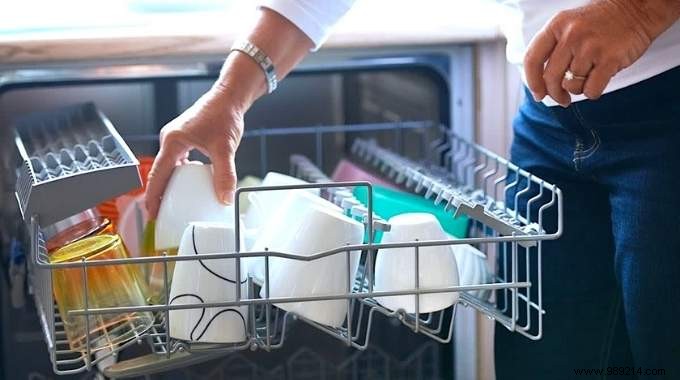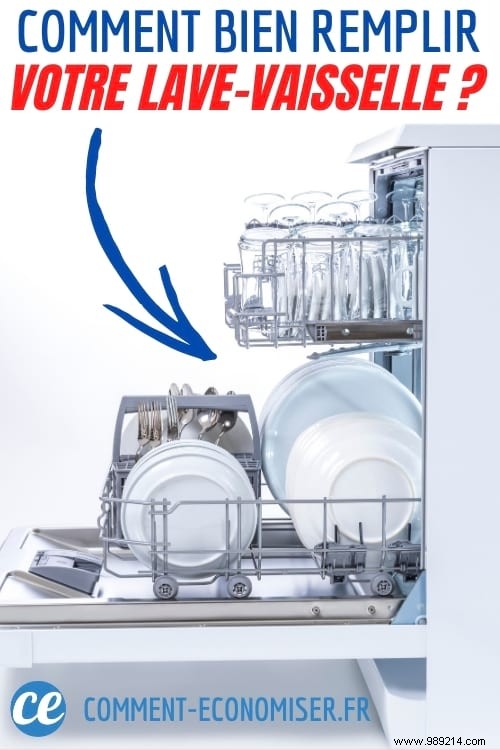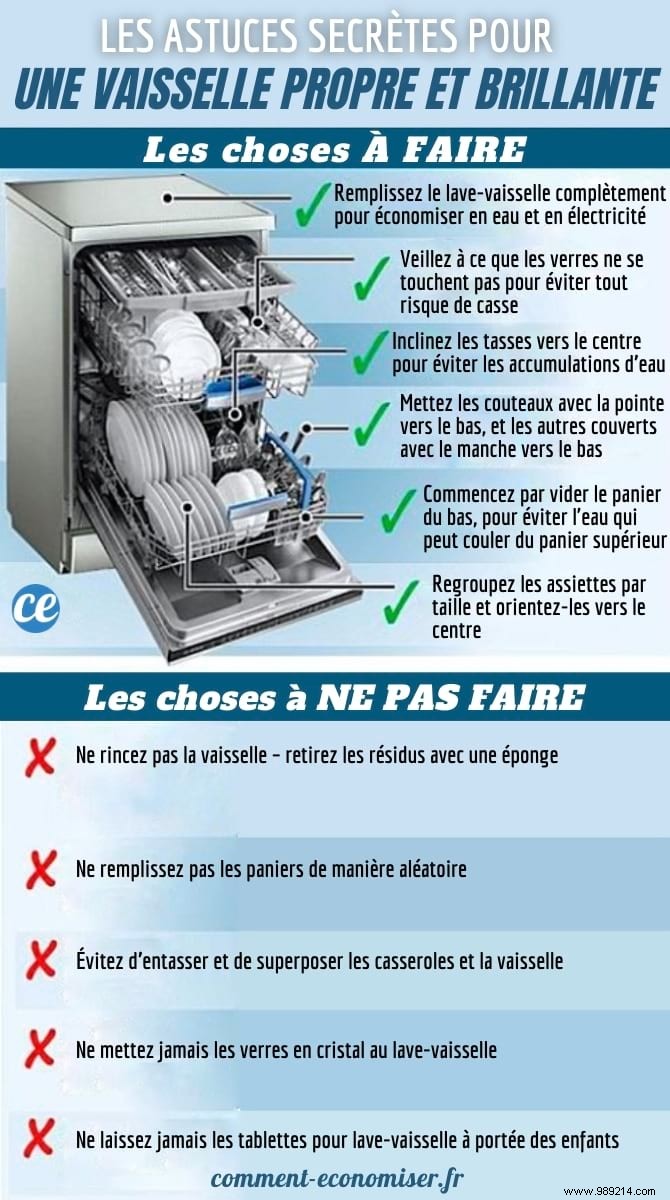
Does your dishwasher wash badly and the dishes aren't clean?
As a result, you have to wash your dishes by hand?
What a waste of time, water and energy!
Be aware that the problem may be the way you fill your dishwasher!
Indeed, few people know that there is a right and a wrong way to fill your dishwasher.
To help you save time, water and electricity, we've listed all the essential tips you need to know in 1 practical guide.
Here is how to properly fill your dishwasher and have ultra-clean dishes every time . Watch:

Click here to easily print this guide in PDF.
1. Put small cups, glasses and bowls in the upper basket.
2. Avoid piling up items , because it obstructs the functioning of the water jets and the action of the detergent, and it also increases the risk of breakage.
3. Also put washable plastic items in the dishwasher in the upper basket, because it is less exposed to the heat which can deform the plastic.
4. Place plates, salad bowls and other large dishes in the lower basket.
5. Put dishes, dishwasher-safe cutting boards and other bulky items on the sides and towards the bottom, so as not to impede the operation of the water jets.
6. Put the casseroles and casserole dishes with burnt food, open side down, tilting in the direction of the water jets from below.
7. Cutlery is stored with the handle down in the cutlery basket. Except for the knives, which are stored with the tip down to avoid injury when removing them. Do not group cutlery by type. It is better to mix them to avoid that they fit together, which would prevent the water from cleaning them well.

Know that modern dishwashers do not require pre-rinsing!
In fact, they are equipped with sensors that adjust the washing cycle according to how dirty the dishes are.
Thus, it is enough simply to scrape off the food residue on the plates, directly in your trash.
To discover: Do you need to rinse dishes before putting them in the dishwasher? The Answer Here.
- Always start by emptying the bottom basket. If you do the opposite, the small remains of water that accumulates on the bottom of the cups will run off the upper basket and wet the dry dishes in the lower basket.
- Clean your dishwasher regularly. Did you know that by cleaning your dishwasher regularly, it will be more efficient and have an increased lifespan? Click here to find out how.
- Use rinse aid to avoid water stains and help your dishes dry. If you don't have any, here's a tip for making your own rinse aid.
- No dishwasher tablets? Here is the easy recipe for making your own tablets.
- You can wash both aluminum and stainless steel parts in the dishwasher. However, never put in the dishwasher:
- wooden kitchen utensils (wooden spoons, rolling pin, etc.)
- delicate glasses
- porcelain with gilding and hand-painted plates
- sharp kitchen knives
- copper and brass crockery
- dishes with ash, wax or ink stains.


1. Fill the dishwasher completely to save water and electricity.
2. Make sure that the glasses do not touch each other to avoid any risk of breakage.
3. Tilt the cups towards the center to avoid water pooling.
4. Place the knives with the tip down. Spoons and forks can be stored with the handle down.
5. Always start by emptying the lower basket, to avoid leftover water on the dishes in the upper basket, which can run and wet the dishes in the lower basket.
6. Group the plates by size and orient them towards the center.
1. Do not rinse the dishes – remove food residue with a spatula or sponge.
2. Do not fill baskets randomly.
3. Avoid stacking and overlapping pots and dishes.
4. Never put crystal glasses in the dishwasher.
5. Never leave dishwasher tablets within reach of children.
